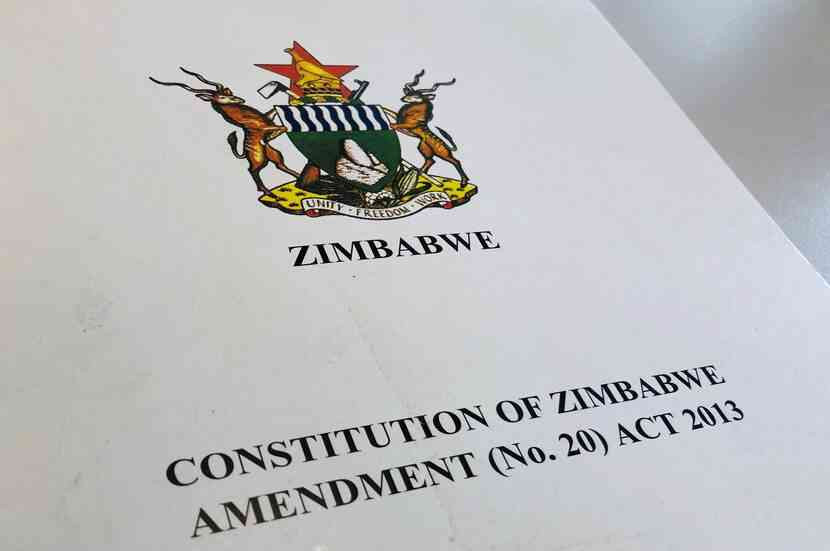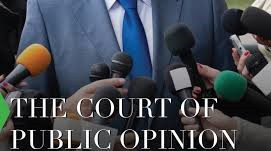
In the same month, barely a fortnight apart, the High Court of Zimbabwe handed down dissenting judgments on a similar subject matter. The first judgment was by Justice Joseph Mafusire in the matter of Stone and Another v Central Africa Building Society and Reserve Bank of Zimbabwe and Finance minister HH 118/23 (hereinafter the Stone judgment). The second judgment was by Justice Webster Chinamhora in Duncan Hugh Cocksedge v CABS & Ors HH 152-23 (hereinafter the Duncan judgment)
In both matters, the applicants were seeking an order that they be paid back their deposits in United States dollars, being the currency that they deposited in their bank accounts before February 2019. Both applicants were attacking, among others the Reserve Bank of Zimbabwe (RBZ) directive RT120/18 then expressed in SI 33/19 and now the Finance Act 2 of 2019. The directive effectively converted United States dollar balances in bank accounts to the RTGS now Zimbabwean dollar depending on the source of funds.
In the Stone judgment, the applicants were challenging the constitutionality of various enactments whose effect was that their USD balances were converted into RTGS balances. They alleged in the main deprivation of property in line with section 71 of the Constitution. They cited among others, the introduction of the auction system to be proof that the alleged 1:1 was fictitious and that the applicant had indeed suffered loss of value.
In the Duncan case, the applicants were claiming that their USD balances be paid to them in that currency based on the duty of care that the bank owes to its clients. In the alternative, Duncan also sought to declare certain enactments that influenced the currency changes unconstitutional for infringing the right to property and equality before the law.
In the Stone judgment, the court held that there was indeed an infringement of the right to property. In handing down the operative part of the judgment, the court held that;
‘The aforesaid paras 2,5 and 2,6 of the Exchange Control Directive RT120/2018 are impeachable because, among other things, they, together with the legislative provisions specifically singled out, were collectively the device by which the second and third respondents improperly interfered with the contractual rights and obligations as existing between the applicants and the first respondent, resulting in, among other things, the deprivation of the applicants’ right to property in breach of s 71(2) of the Constitution. Additionally, paras 2.5 and 2.6 of the Exchange Control Directive RT120/2018 are ultra vires s 35(1) of the Exchange Control Regulations, 1996, in that they purported to arrogate to themselves the power which the Exchange Control Regulations did not have and, in the process purported to invade rights protected under s 71(2) of the Constitution.’ As a consequence, the court ordered that the applicant be paid back his deposit in the United States dollar being the amount deposited.
A fortnight later, in the Duncan judgment, the same court held that the bank had not infringed any duty of care as they were merely following directives passed by their regulator and they too were affected by the laws. As regards the constitutionality argument, the court held that there was nothing irrational about the laws passed by the government to try and restore confidence in the economy. The learned judge cited the rationale of RT120/2018 which was the need to, ‘enhance market confidence, promote transparency, preserve value, incentivize foreign exchange and promote effective utilisation of foreign currency…’
The court found that the alleged limitation of the right to property had been done by a law of general application and was thus correct. He reasoned that the regulation of banking activities to achieve stability in the economic sector is a political question, ‘best left to the politicians’ The learned judge then dismissed the application and slapped the applicant with costs of suit on the higher scale against the bank.
- RBZ blocks Harare US dollar charges
- Industry cries foul over new export surrender requirements
- One stitch in time saves nine
- Banks keep NPLs in safe territory
Keep Reading
Interestingly, in the Stone judgment, Justice Mafusire also identified that the issue may be a political one. He held that, ‘The power of government to govern is unquestioned… this power it derives from the Constitution’. He too cites previous decisions that buttress this point, for example Doctors for Life International v Speaker of the National Assembly & Ors 2006 (6) SA 416 (CC) which held that;
“Courts must be conscious of the vital limits on judicial authority and the Constitution’s design to leave certain matters to other branches of government. They too must observe the constitutional limits of their authority. This means that the Judiciary should not interfere in the processes of other branches of government unless to do so is mandated by the Constitution.”
The court, however, noted that there were exceptions to this general rule. He ruled, “However, to every rule there is invariably an exception. In constitutionalism there is always a corollary. The wide range of powers enjoyed by the Executive and the Legislature is not unchecked. It is not without limit. The power is not exercised arbitrarily. Government cannot, in the name of sovereignty, invade rights guaranteed by the Constitution unless the Constitution itself permits it.”
It is on this premise that the court in the Stone case proceeded to then examine the constitutionality of the various enactments reaching the conclusion that rights had indeed been infringed.
The effect of the judgments
The effect of the Duncan judgment is clear — the applicant must be paid its claimed amount in the now Zimbabwe dollar in terms of the law as it is. As regards the Stone decision, it is of no force until it has been confirmed by the Constitutional Court. This is in terms of section 175 (1) of the Constitution which provides that, ‘Where a court makes an order of constitutional invalidity of any law … the order has no force unless it is confirmed by the Constitutional Court’
A confirmation of the Stone judgment would bring chaos into the monetary regime in Zimbabwe. The Stone decision is basically saying that banks which were unable to recover USD which they had extended through loan facilities to clients before February 2019 must pay depositors their balances in USD.
It would mean people who paid back loan facilities to banks in RTGS must now pay back in USD; that the government domestic debt still heavily exists. It is unlikely that any deposit taking institution including the RBZ would survive this. They will all become instantly insolvent.
The question before the Constitutional Court is whether or not the High Court was correct in finding that;
- The conversion of the amount of USD142 000-00 standing to the credit of the applicants’ savings account No. 1005428905 with the first respondent as at 28 November 2016 violated s 71 of the Constitution.
- Paras 2.5 and 2.6 of the Exchange Control Directive RT120/2018 aforesaid violate s 71 of the Constitution.
- Section 22(1)(b) and (d) and s 22(4)(a) of the Finance (No. 2) Act No. 7 of 2019 violate s 71 of the Constitution and are hereby set aside.
My opinion is that the High Court was correct in its finding. It is true that the conversion of balances resulted in a loss of value and thus a deprivation of property which affected all Zimbabweans. The banking public was deprived of the right to the value of their deposits with banks. Anyone who had a bank account in Zimbabwe felt and saw this.
However, as discussed above the confirmation would have chaotic and would have potentially irreversible effects. It is my opinion that the Constitutional Court is likely to exercise its power under section 175(6) (b) of the Constitution which allows the court to make an order declaring or confirming constitutional invalidity but suspending the declaration of invalidity for any period. It is my view that this approach is legally sound and appropriate - there was indeed a deprivation but one that is impossible to reverse. The decision will at least influence future policy creation and implementation but the country must move on from this one. In the meantime, we wait for the Constitutional Court!











